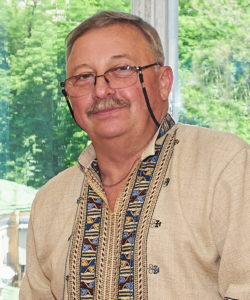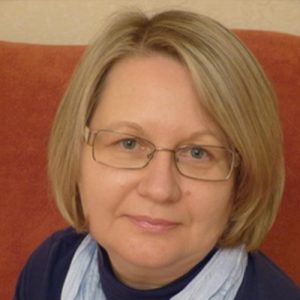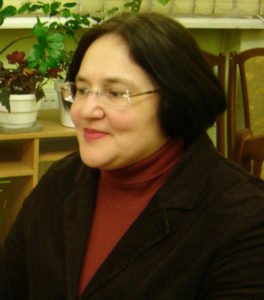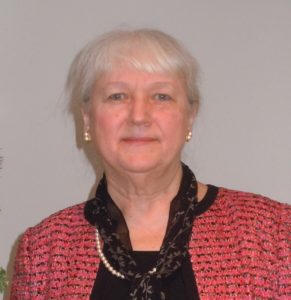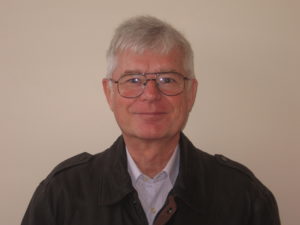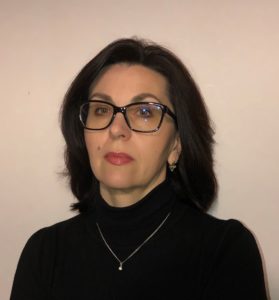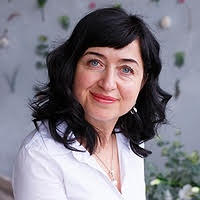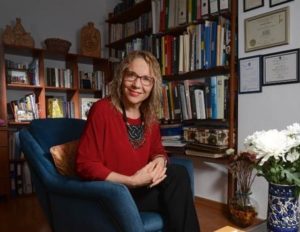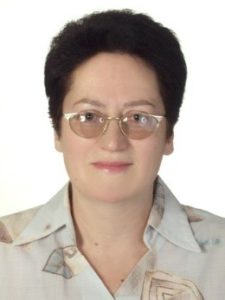Research grants 2020
The HREC Research Grants Competition is held annually to support academic research on the Holodomor, the publication of research results, the preservation of materials, and the organization of and participation in academic venues. Each year, a new thematic focus is established, though proposals for other topics are considered. The applications are reviewed by a committee of scholars and HREC associates.
-
2020 HREC Research Grants Competition
HREC awarded a total of $39,000 CAD for 14 grants, ranging from $1,300 to $5,000, through its 2020 Research Grants Competition. Projects supported in this year’s competition were aimed at research that expands our knowledge and understanding of the Holodomor; publication and translation of research results; preservation of materials; and organization of and participation in academic forums. The grants competition announcement gave as examples research on the policies of foreign governments during collectivization and the Holodomor; the fate of various groups living in Ukraine (ethnic, social, etc.) ; diaspora communities and their kin in Soviet Ukraine; and the Holodomor at the national and sub-national levels (eg., oblasts, raions, villages). HREC also accepted proposals for larger collaborative projects that engage scholars and institutions from both in and outside Ukraine.
Individual Projects 2020
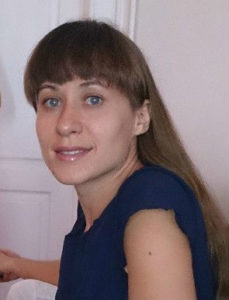
Yulija Hryschenko
Institute of History of Ukraine, National Academy of Sciences of Ukraine (Kyiv)
“Bulgarians in the Ukrainian SSR in the Time of Total Collectivization and the Holodomor.”
This project focuses on the dramatic changes that the Bulgarian national settlements in Ukraine underwent in the 1920-30s in the course of collectivization, administrative-territorial reform, ideological and institutional transformations, as well as the so-called “cultural revolution” and the policy of korenizatsiia.
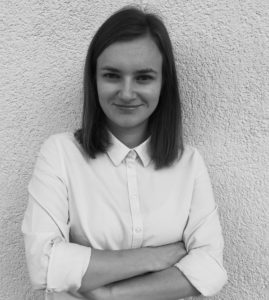
Andreea Kaltenbrunner
University of Vienna
“An Ignorant Neighbour? Reactions to the Holodomor in Romania.”
Examining reactions in Romania to the Famine of 1932-33 in Ukraine, this project will produce a comprehensive study on how Romania, a neighbour of the Soviet Union with a large Ukrainian community, reacted to the Famine. Although the authorities knew and understood that a famine was taking place, they did not criticize the Soviet Union abroad due to political reasons. Using resources from archives in Romania, Moldova as well as Ukraine (Chernivtsi), the project investigates the responses to the Holodomor, focusing on the Romanian authorities as well as the Ukrainians living in interwar Romania.
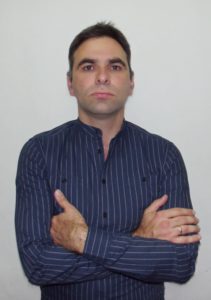
Artem Kharchenko
Igor Sikorsky Kyiv Polytechnic Institute
“How to Describe the Forcible Transfer of Children in the Soviet Orphanages of the USSR during the Holodomor?”
The activities of Soviet orphanages are part of the history of the Holodomor 1928-35. This project focuses on formal and informal Soviet orphanage practices. The author hypothesizes that these practices can be considered genocidal with social, cultural, national and age aspects to consider.
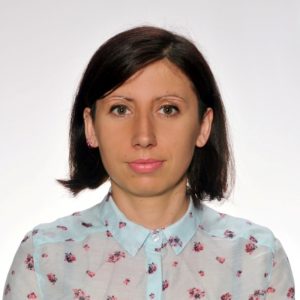
Karolina Koziura
PhD candidate, The New School for Social Research (New York)
“No Reconciliation without Recognition: The Work of Transnational Holodomor Memory Activists.”
Through this project, Karoline examines the work of Holodomor transnational memory activists and problematizes their struggles for the international recognition of the Famine as a crime of genocide. Using interviews, discourse analysis, and media content analysis in Ukraine, Canada, and the United States, she will investigate the commemorative practices and remembrance projects organized by Ukrainian diaspora in Canada within the context of transitional justice.
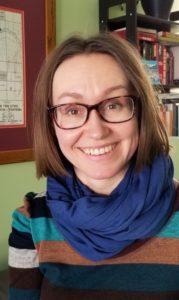
Iuliia Kysla
University of Alberta
“Re-visiting Traumas from the Soviet Past. Ukrainian Cinema Between History and Politics, 1989-2020.”
Drawing on recent developments in colonial and postcolonial theory and on wider literature in the areas of historical politics and memory as well as trauma, this project analyzes post-Soviet Ukrainian cinema’s engagement with history, particularly from the Soviet era. It addresses the cinematic treatment of the Holodomor and explores documentaries and feature films depicting the Famine, with an emphasis on the handling of trauma and use of visual strategies.
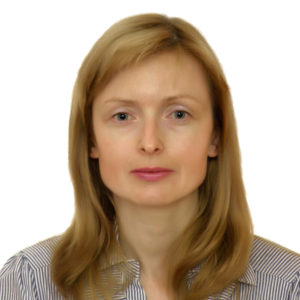
Nataliia Levchuk
Ptoukha Institute for Demography and Social Studies (Kyiv)
“Collective Farms, Grain Procurements and 1932-33 Famine Losses in Ukraine and Russia: A Comparative Regional Analysis.”
Using data from collective farm archives and from statistical compendiums for Ukraine, its oblasts, and the major grain-producing regions of Russia (Lower Volga kraj, Central Black-Earth oblast, Central Volga kraj and North Caucasus kraj), Nataliia Levchuk proposes to compare the situation of collective farms and 1932-34 Famine losses in the context of Soviet repressive grain procurement policies and to analyze the dynamics of peasant resistance through their exodus from collective farms before and during the Famine. The goal is to establish similarities and differences in regional economic performance during the 1930-32 grain procurement campaigns and to determine whether there is a correlation between regional population losses and the specific characteristics of collective farms.
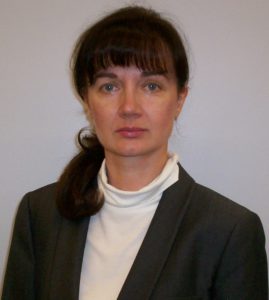
Victoria Malko
California State University (Fresno)
Roundtable Discussion of Women and the Holodomor-Genocide: Victims, Survivors, Perpetrators at the 52nd ASEEES Convention in Washington, DC
The grant supports a roundtable discussion of Women and the Holodomor-Genocide: Victims, Survivors, Perpetrators, a monograph edited by Victoria A. Malko (published in May 2019 by The Press at California State University, Fresno), to be held at the 52nd ASEEES Convention in Washington, DC, in November 2020. Participants from Canada, Ukraine, the United Kingdom, and the United States will foreground the experiences of women during the Holodomor from an interdisciplinary perspective of gender and genocide studies, thus contributing to an understanding of gender aspects of the Holodomor and increased awareness among scholars and the general public.
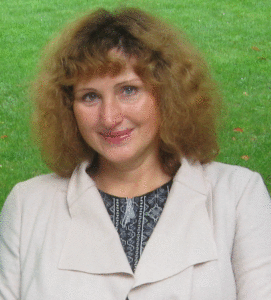
Olha Riabchenko
H.S. Skovoroda Kharkiv National Pedagogical University
“Ukrfil is Fully Satisfied with Us”: Artists' Services to the Political Campaigns in the Countryside during the Stalinist 'Revolution from Above' and the Holodomor (1928-1933)."
Under conditions of extreme oppression in the 1928-33 period, artists and writers were often left with no choice during the grain sowing and harvesting campaigns but to tour the villages under the slogans “Art in the fight for the reconstruction of agriculture! Raise high the flag of total collectivization! Let’s liquidate the kurkuls as a class!” The project examines the role of the Ukrainian artistic, cultural and literary intelligentsia in servicing Soviet propaganda campaigns in the countryside with a focus on the attitudes of artists towards their participation, their interaction with peasants and party activists in the villages, and the results of these tours.
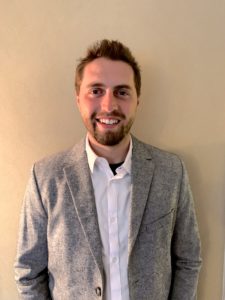
Johnathon Vsetecka
Ph.D. candidate, Michigan State University
“In the Aftermath of Hunger: Coming to Terms with Famine in Soviet Ukraine, 1933-1988."
This project examines the ways in which repercussions of the 1932-33 Holodomor influenced, controlled, and directed the lives of Ukrainians who attempted to move on from the violent and hungry years of the 1930s. It also incorporates in its scope the 1946-47 famine, the third famine to hit Soviet Ukraine in the twentieth century. Understanding the context of this third famine will help to elucidate ways in which hunger policies in Soviet Ukraine were part of a continuity of violence and starvation.
Collaborative Projects 2020
Hennadii Boriak
Institute of History of Ukraine, National Academy of Sciences of Ukraine (Kyiv)
Oksana Yurkova
Institute of History of Ukraine, National Academy of Sciences of Ukraine (Kyiv)
Kateryna Lobuzina
Vernadsky National Library of Ukraine, National Academy of Sciences of Ukraine.
“Scattered and Unknown Holodomor Era Visual Documents: Kyiv Region.”
The limited visual documentary sources from the Holodomor era call for a thorough investigation of photo collections of local regional museums in regions of Ukraine. The project will survey the 17 modern oblasts that cover the former six Ukrainian administrative units (oblasts) of the Holodomor era. The researchers intend to discover, preliminarily describe, record, scan, and annotate these visual sources as well as those for the pre- and post-Holodomor periods with the ultimate goal of publishing an annotated catalog of the discovered visual sources, both as a database and as a book.
Zina Poletz Gutmanis
St. Michael's and St. George's Ukrainian Orthodox Church (Minneapolis)
Halyna Myroniuk
St. Michael's and St. George's Ukrainian Orthodox Church (Minneapolis).
“Context for Holodomor Commemorations and Narratives in Minnesota 1953-2018.”
Drawing from the University of Minnesota’s extensive resources, this project looks at how the Ukrainian community in Minneapolis-St. Paul speaks about and makes sense of the Holodomor, whether this has changed over time, and how this community compares to others. As part of a larger inquiry into the transgenerational impact of the Holodomor in a Ukrainian diaspora community, researchers will identify and study commemorations and narratives in other ethnic communities touched by genocide and compare findings with the commemorations and narratives.
Oleh Wolowyna
University of North Carolina (Chapel Hill)
Larysa Yakubova
Institute of the History of Ukraine, National Academy of Sciences of Ukraine (Kyiv).
“Estimation of Urban and Rural Holodomor Losses of Five Nationalities in Soviet Ukraine.”
The project addresses an important question in Holodomor research: who was the target of the Holodomor, mainly Ukrainian peasants or all persons living in Soviet Ukraine at the time? Rural and urban Holodomor losses will be estimated for five nationalities in Soviet Ukraine – Ukrainians, Russians, Poles, Germans and Jews – at the national and oblast levels. Losses in urban areas will be elaborated along two dimensions: urban areas by population size; and cities by type of industrial-economic structure. Archival research will be conducted at the Dezhavnyj Arkhiv Hromadsjkykh Orhanizatsij in Kyiv and regional archives in Vinnytsia, Kyiv, Kharkiv, Odesa and Donetsk oblasts.
Larysa Zasiekina
Lesya Ukrainka Eastern European National University (Lutsk)
Ruth Pat-Horenczyk
The Hebrew University of Jerusalem
“Moral Injury: a Comparative Study with Offspring of Holodomor and Holocaust Survivors.”
The study addresses the question of transgenerational transmission of moral injury in Holodomor and Holocaust descendants. The researchers propose to define and operationalize moral injury in the Ukrainian and Israeli populations using psychosocial data, applying mixed methodology of both qualitative and quantitative analysis. They will measure moral injury to offspring of Holodomor and Holocaust victims in the Ukrainian and Israeli populations, map the psychosocial consequences and associated difficulties in the offspring generation, and conduct a pilot study comparing transgenerational transmission of moral injury in offspring of Holodomor and Holocaust survivors.
Olha Vasylenko
Glier Kyiv Municipal Academy of Music
Irene Okner
Art Director of the “Boulevard” Center (Queens, NY)
Irene Giraudet
Coignières Foyer Club (France)
Tatiiana Markovs’kaia
Glier Kyiv Municipal Academy of Music
Yurii Riaboshkapov
Kyiv National I. K. Karpenko-Kary Theatre, Cinema and Television University
Oleksandr Vasylenko
Ukraine International Chamber of Commerce (Kyiv)
“Digital Library of Holodomor Podcasts in the Music of Ukrainian Composers.”
This collaborative project brings together specialists from Ukraine, France and America to present the outstanding musical works of Ukrainian composers on the theme of Holodomor covering the period starting from the first decades of the twentieth century to the early twenty-first century.
